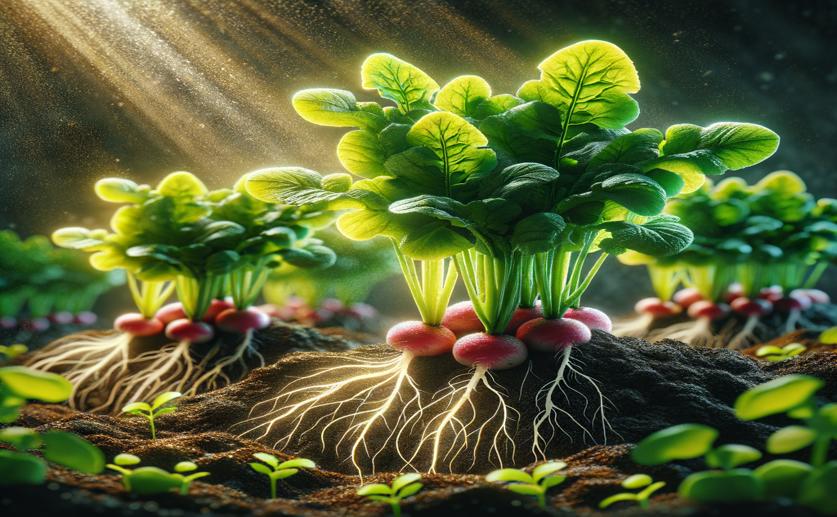
Cleaner Soil and Better Radish Growth with Treated Biochar
Jenn Hoskins
23rd May, 2024

Image Source: Natural Science News, 2024
Key Findings
- The study by Nagasaki University tested biochar made from cypress wood, treated with calcium hydroxide, to reduce heavy metal contamination in soil
- Calcium-treated biochar (TCBC) improved soil properties and was more effective than untreated biochar (UCBC) in enhancing plant growth and immobilizing heavy metals
- TCBC significantly reduced the uptake of zinc and copper by radish plants, and lead uptake was undetectable after its application
AgricultureEnvironmentPlant Science
References
Main Study
1) Heavy metal immobilization and radish growth improvement using Ca(OH)2-treated cypress biochar in contaminated soil.
Published 20th May, 2024
https://doi.org/10.1016/j.chemosphere.2024.142385
Related Studies
2) A field study on the dynamic uptake and transfer of heavy metals in Chinese cabbage and radish in weak alkaline soils.
Journal: Environmental science and pollution research international, Issue: Vol 23, Issue 20, Oct 2016
3) Nickel uptake in leafy greens from contaminated soil: an investigation into phytoavailability and health risk assessment using in vitro digestion model.
4) Monitoring metal pollution in soils using portable-XRF and conventional laboratory-based techniques: Evaluation of the performance and limitations according to metal properties and sources.
5) Transfer of heavy metals from soil to tea and the potential human health risk in a regional high geochemical background area in southwest China.



 14th May, 2024 | Jim Crocker
14th May, 2024 | Jim Crocker